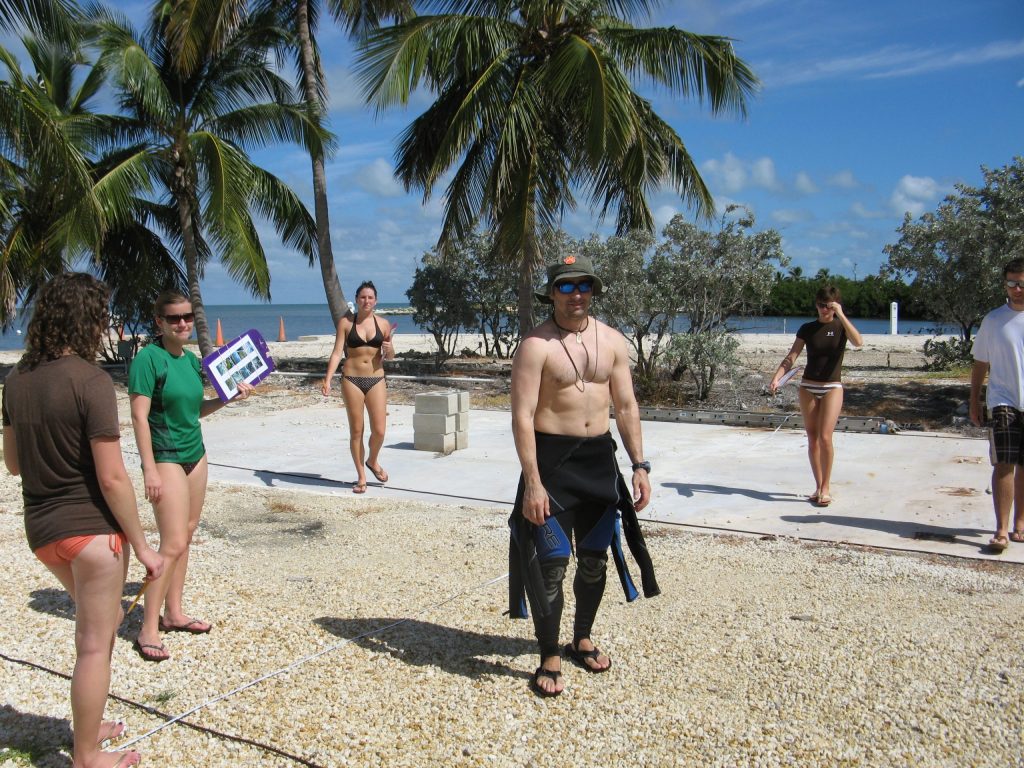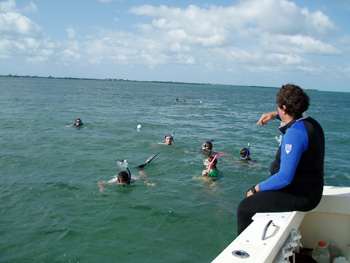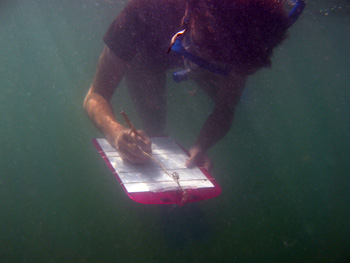
Florida Bay is a unique natural treasure in the heart of the Florida Keys National Marine Sanctuary. Unfortunately, recent changes in water quality, eutrophication, and commercial fishing are in the process of changing the near-shore marine communities dramatically along the Middle Keys. Dr. Michael Childress, a long-time researcher at KML, has developed the concept of the KML Living Laboratory to coordinate the data collection activities of student groups that come to the Keys Marine Lab in order to build a long-term dataset on the health of the near-shore marine communities of Florida Bay. He has partnered with KML staff to offer this unique education program for visiting classes at the Lab.

Introducing groups of students to field research in marine ecology can be difficult due to the time and logistical limitations inherent with most class trips to the field. The KML Living Laboratory program makes it easier for education groups visiting KML to provide these important opportunities for students to learn what field research in marine ecology is all about. The Living Laboratory provides sampling gear, data sheets, instructional materials, and access to prior ecological data for faculty and instructors that would like to participate in our community assessment monitoring program. The Living Laboratory is a series of permanent benthic monitoring stations that have been established at 5 sites easily accessible by KML research vessels, with an additional site on the hardbottom/flats in front of the Wet Lab and accessible from the KML seawall.

Sampling protocols for the Living Laboratory have already been established, are relatively simple, and are easy for students to learn. Sampling sites are located in shallow, clear-water, easily-to-snorkel habitats with manageable numbers of species to keep track of. Student participants in the Living Laboratory not only learn the sampling techniques and collect data in the field at one or more sites, they can then enter their data into the KML database and immediately compare it to those from previous groups that have participated in the program. Students’ results will then become part of the long-term dataset, helping to monitor the health of the nearshore habitats in the Florida Keys and Florida Bay. This activity requires intermediate swimming and snorkeling skills. Principal investigators and group leaders are expected to remain directly engaged with their respective groups during these (and similar) types of activities.
Please contact Lisa Tipsword, our Operations Manager, if you are interested in participating in or would like more information about the KML Living Laboratory program.